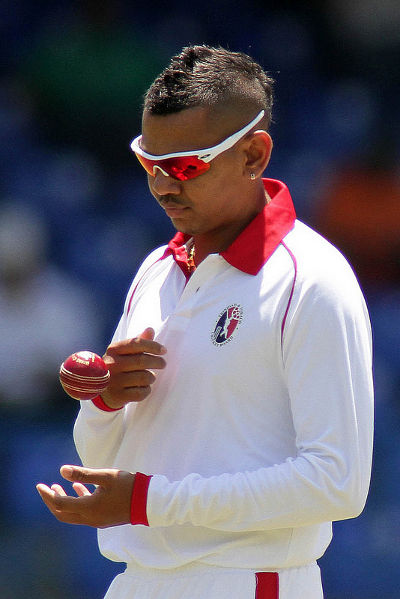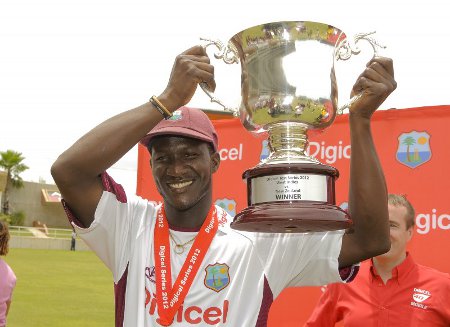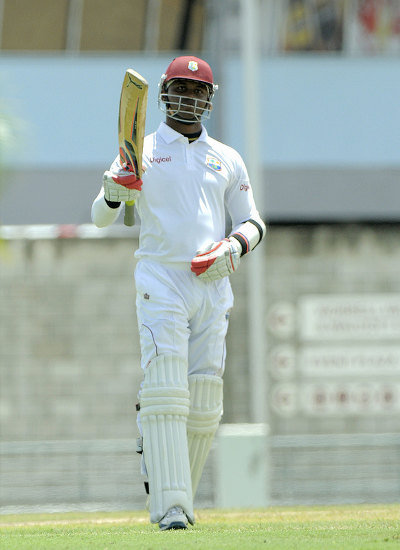In Charlie’s Angels, an American television series later adapted into a movie, three attractive private investigators work for a boss that they never met and who gives instructions through speaker phone.
It is tempting to believe that the West Indies cricket team shares a similar relationship with its selection committee, which is chaired by Clyde Butts and also includes Courtney Browne and Robert Haynes.
In the world’s top cricket nations, the chairman of the selecting committee usually faces the public and announces the squad through a press conference or at least explains the rationale behind selection through its public relations arm.
Not in the West Indies, though.
It is more than two years since Butts, who took up his post in 2008, has been quoted publicly on team affairs and it appears that the West Indies Cricket Board believes that the Caribbean cricket public does not deserve the simple decorum of an explanation for its decisions.
Coach Ottis Gibson, before the just concluded Barbados test, attempted to explain why the selectors excluded spin bowler Sunil Narine and middle order batsman Ramnaresh Sarwan.

(Courtesy WICB/Ashley Allen)
Those reasons eased the initial shock of Narine’s absence and the understandable thinking behind leaving out Sarwan although it too. However the following statement from Gibson was concerning:
“If you look at the batting line up at the moment, the batting line up seems to be settled. We played five batsmen in Bangladesh and made a lot of runs.”
This new five batsman strategy use in Bangladesh last year followed a period of two years when the West Indies consistently picked only three front line bowlers (two fast bowlers and one spinner).
Both those strategies seemed to have been designed specifically to accommodate Sammy in the Test side since the St Lucian is, arguably, unable to earn his pick as a specialist batsman or bowler.
Like the proverbial man with a short blanket on a cold night, the West Indies cricket team is constantly forced to either lighten its bowling or batting attack so as to include its captain.
Sammy’s supporters claim he brings control to the bowling attack with his nagging line and length, which has found rewards. But the statistics are not encouraging.
In his 24 tests as skipper to date, Sammy clinched 49 wickets at 38.20 with an economy rate of 2.75 while tallying 864 runs at an average of 24.00. As a supposed Test all-rounder, it is an inadequate CV.

(Courtesy Digicel)
Twice in the last 18 months, Sammy, perhaps inadvertently, admitted his own limitations as a bowler.
“I think the batsmen really underestimate me,” said Sammy, during a 2012 Test against Australia in Bridgetown. “They get through the quick men and see me and say ‘ah he’s not so quick.’ But what I rely on is accuracy: frustrate them, frustrate them, take the ball away from them, then get a little closer, just in that little channel to play or leave.
“That’s what I did today and what I’ve been doing throughout my career, just putting the ball on one spot.”
He shared similar sentiments, a year earlier, during another Test against India in Mumbai.
“My job in the team is to be the workhorse (and) bowl lots of overs,” said Sammy. “I guess the mistake batsmen make is they underestimate me and get relaxed when they face me. It presents an opportunity to slide one through and get a wicket.”
While Sammy sees the positives in his ability to catch opponents unawares and pinch a few prize wickets, it is hard to be enthusiastic about the disregard in which Test cricket’s top batsmen view the West Indies captain.
If the West Indies’ bowling attack is built around pure fast bowlers like Kemar Roach, Ravi Rampaul, Tino Best, Shanon Gabriel, Fidel Edwards, Jerome Taylor and Jason Holder, then I am confident it will not miss Sammy’s contribution. Especially when spinners like Narine and Shane Shillingford can easily fulfill the present captain’s holding role, as is typical for spinners in the Test format.
His captaincy does not offer the tactical genius or inspirational aura that arguably justifies his place as skipper alone, as might have been the case with ex-England captain Mike Brearley, who according to Australian fast bowler Rodney Hogg, had “a degree in people.”
In my opinion, Marlon Samuels should take over as Test captain based on his 2012 batting exploits and new-found maturity. It is tantalizing to think that more responsibility might further transform his game.

(Courtesy WICB/Randy Brooks)
Sammy has had enough time at the helm leading the West Indies team.
In recent years, as the WICB and the players squabbled constantly, Sammy’s captaincy was like cast over a broken bone. He offered temporary support in a time of need.
However, old disagreements seem to have been mended and the team is ready to enter a new era.
And, as much as Sammy remains an asset in the One Day International (ODI) and T20 formats, he needs to be let go if the West Indies team is to make the step up and start challenging the major Test nations again.
Colin Benjamin’s preferred West Indies Test XI:
Chris Gayle, Kieron Powell, Ramnaresh Sarwan, Darren Bravo, Shivnarine Chanderpaul, Marlon Samuels (captain), Denesh Ramdin, Sunil Narine, Ravi Rampaul, Tino Best, Kemar Roach.
Reserves: Narsingh Deonarine, Shane Shillingford, Shanon Gabriel, Fidel Edwards, Kirk Edwards, Chadwick Walton.
Colin Benjamin is a former communications officer for Cricket West Indies and Trinidad and Tobago Professional Football League club, W Connection FC.
 Wired868 Wired868 for smart sport news and opinion
Wired868 Wired868 for smart sport news and opinion








Thanks for your comment Boopey.
Usually i would advocate either Gayle or Ramdin for test captain to replace Sammy, but of late i support Samuels because i have noticed a interesting similarity with his current career path to Carl Hooper, who also became West Indies captain without many people initially supporting the idea.
Hooper was always praised for his elegant batting, but equally lambasted for being a bit too laid back and as a result not valuing his wicket, batting for the crowd instead of the team needs. After the first 12 year of career, he average 33.76, which clearly did not reflect his potential. However when given the captaincy responsibility on his return to test cricket in 2001, Hooper’s batting finally blossomed to the level that was always expected of him.
Similarly before his return to international cricket in 2011, Samuels suffered all those accusations too.
He has handled that issue you mentioned with his countrymen quite well, along with the heated arguments he had with Shane Warne in Australia Big Bash this January. The old Samuels would have reacted poorly in those situations.
Added to this Samuels gives back to the community & started a charity for blind kids in Jamaica as he revealed last month on a interview on Sportsmax.
He is changed man on & off the field & i believe the responsibility of captaincy can further enhance his development.
Your articles are usually quite good, but this is the biggest piece of nonsense i have ever read. Marlon Samuels is the most polarizing cricker in jamaica and the WI and several jamaiuican cricketers have said that he isn’t a team player. The Sammy experiment should end, but certainly not with Marlon at the helm